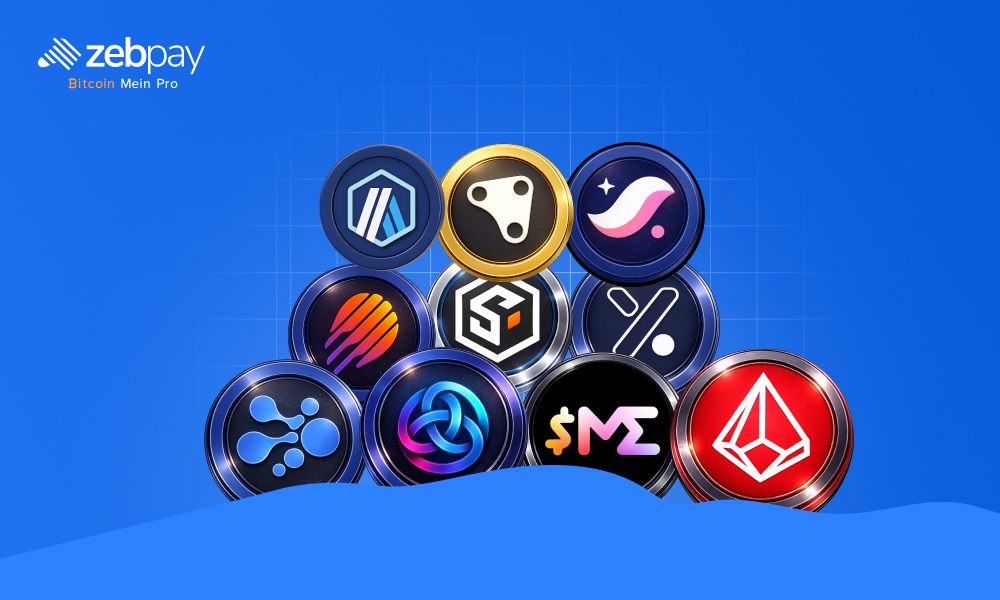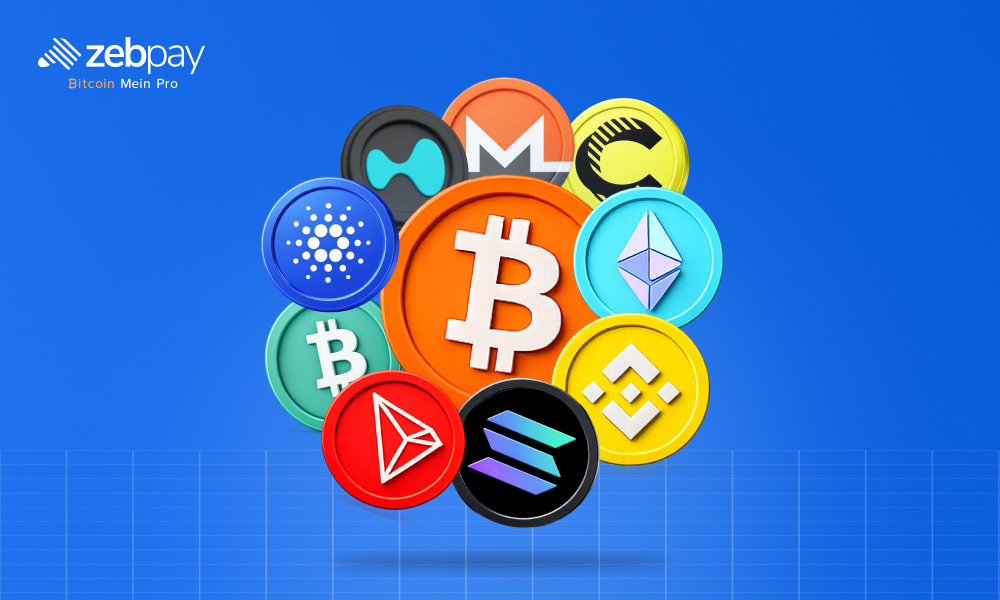Blockchains can be applied in most industries – from finance to supply chain management and gaming. This would have been highly unlikely just a few years ago, but rapid innovation has made it a reality. One of the main developments that have propelled blockchain technology forward is smart contracts. But what are smart contracts?, and why are they so crucial to blockchains?
What Are Smart Contracts?: Definition and Purpose
Traditional contracts allow parties to enter an agreement that is only complete when everyone holds up their side of the bargain. But this process can be cumbersome and require intermediaries to complete effectively. Smart contracts solve these issues.
Smart contracts are self-executing sets of code that operate on a blockchain. They are computer programs that automatically execute an action when certain conditions are met. Smart contracts are designed to be transparent and secure. Once they are executed, they also cannot be altered, which is known as immutability.
Brief History of Smart Contracts and Their Development
This concept can be traced back to the early 1990s. Nick Szabo first proposed the idea of “a computerized transaction protocol that executes the terms of a contract.” This was termed a smart contract.
However, it wasn’t until the emergence of blockchain technology that smart contracts became a reality. Ethereum, a blockchain platform launched in 2015, is widely credited with popularising its use.
Since then, there has been an explosion of interest in smart contracts. They have been adopted by a range of industries, including finance, supply chain management, and real estate.
Read more: What Are Blockchain Layers
Importance of Smart Contracts in Modern Business Transactions
Smart contracts have several benefits for modern business transactions, including:
- Automation: Smart contracts can automate the execution of contract terms. This eliminates intermediaries such as lawyers, brokers, and banks. This can significantly reduce the time and cost associated with contract execution.
- Transparency: Smart contracts are transparent. All parties involved can see the contract’s terms and its execution on the blockchain. This can increase trust and reduce the potential for disputes.
- Security: Smart contracts are stored on a decentralised blockchain network, making them virtually impossible to tamper with or hack. This provides a high level of security and removes the need for an authority to oversee it.
The Mechanics of Smart Contracts: How Do They Work?
Understanding the Technical Architecture of Smart Contracts
Every smart contract differs from another, based on functionality and other concerns. But on a basic level, a smart contract is built on a blockchain network. The blockchain and its native token act as the backbone of the smart contract and enables its operation.
Smart contracts also require parties and conditions. Any individual or group can create a custom contract with its own set of rules. Once two or more parties enter it, it is only completed if both abide by its rules. This makes the process trustworthy and seamless.
Key Components of Smart Contracts
Some of the key components that make up a smart contract are mentioned below.
- Blockchain: A smart contract is stored on a blockchain network. It provides the infrastructure for executing a contract.
- Smart contract code: The smart contract code is a computer program that contains the contract’s terms. It defines the terms of the contract in the relevant programming language.
- Triggering mechanism: Smart contracts are triggered when certain conditions are met. This triggering mechanism is typically an external event, such as a payment or a date.
- Digital signatures: Digital signatures are used to ensure the authenticity of the parties involved in the contract. Each party signs the contract using their private key, which is verified on the blockchain.
- Consensus mechanism: The consensus mechanism is the algorithm used by the blockchain to validate all transactions, including contracts.
Advantages of Smart Contracts over Traditional Contracts
Some of the advantages of smart contracts over traditional contracts are
- Accuracy: Smart contracts are executed exactly as programmed, which reduces the potential for errors or mistakes.
- Flexibility: Smart contracts can be customized to suit the specific needs of a business transaction, making them highly flexible and adaptable.
- Cost-effectiveness: Smart contracts can significantly reduce the cost of executing a contract, as there is no need for intermediaries like banks or lawyers.
Programming Smart Contracts: Building Blocks and Tools
Programming Languages Used in Smart Contracts
The programming language used depends on the blockchain platform you choose. Some of the most popular languages include Solidity, Java and Rust. Solidity is widely used to develop contracts and applications on the Ethereum blockchain. On the other hand, Rust is used by blockchains such as Solana and Polkadot.
Development Tools for Smart Contracts
There are several fantastic tools available to smart contract developers:
- Remix: Remix is a web-based IDE (Integrated Development Environment). It allows developers to write, test, and deploy smart contracts on the Ethereum blockchain.
- Truffle: Truffle is a popular development framework for Ethereum-based smart contracts. It provides a suite of tools, including a development environment, testing framework, and deployment pipeline.
- Oracles: Oracles allow smart contracts to access off-chain information. They act as a bridge between the blockchain and the outside world. They are essential, especially when your contract requires data from outside the blockchain.
Debugging and Testing Smart Contracts
Debugging and testing smart contracts are crucial to the development process. Even small errors or vulnerabilities can lead to significant losses or breaches. There are several techniques and tools available for debugging smart contracts. These include manual and automated testing, code analysis and debugging tools included in IDEs.
Applications of Smart Contracts: Use Cases and Examples

Use Cases of Smart Contracts in Various Industries
Smart contracts, thanks to their generalisable nature, can be applied to most industries. Some of the most common use cases include finance, real estate and supply chain management.
In finance, smart contracts can automate transactions like loans, investment agreements and insurance claims. This greatly increases efficiency and transparency, as no third parties or human intervention is required.
Supply chains are another popular avenue for smart contracts. This architecture enables transparent and immutable tracking of items across the chain, meaning data is reliable and secure.
Finally, even healthcare has been improved through smart contracts. Secure sharing of medical data gives data ownership back to the patient. Additionally, payment processing and insurance can be streamlined through smart contracts.
Examples of Successful Implementations of Smart Contracts
There are several examples of blockchain platforms that have leveraged smart contracts successfully.
- DeFi (Decentralized Finance): DeFi is a blockchain-based financial ecosystem that enables decentralized financial services. Some examples of DeFi platforms are MakerDAO, Compound, and Aave. The platforms use smart contracts to automate financial transactions, manage collateral and distribute interest.
- Supply Chain Management: Walmart has implemented a blockchain-based supply chain management system called Walmart Food Traceability Initiative. This uses smart contracts to track the origin and quality of food products. The system enables Walmart to quickly identify and recall contaminated products, improving food safety and reducing costs.
- Gaming: Blockchain-based gaming platforms, such as CryptoKitties and Decentraland, use smart contracts. This enables peer-to-peer transactions of digital assets, such as in-game items and virtual real estate.
Read more: What Is GameFi
Future Potential of Smart Contracts
Currently, one of the main limitations of smart contracts is the legal and regulatory environment. Real estate and intellectual property are ideal areas for the expansion of smart contracts. But until the regulation of digital assets is not clarified, smart contracts are ineffective tools to manage legal documents.
Read more: Metaverse Real Estate
Smart Contracts and Blockchain Technology: Integration and Interdependence
Relationship Between Smart Contracts and Blockchain Technology
Smart contracts are implemented using blockchain technology. Blockchains provide the necessary transparency and immutability required for smart contract operation. When a smart contract is created and deployed on a blockchain, it is recorded and becomes part of a permanent, immutable record of all transactions. This provides transparency and security to all parties involved.
Blockchains also provide the security and decentralization required for smart contracts to function. Nodes execute smart contracts on the blockchain network, which ensures that the contract is not tampered with. Since the blockchain is decentralised, no single entity can control or manipulate the contract, thus maintaining its fairness.
Advantages and Limitations of Smart Contracts on the Blockchain
Advantages of smart contracts
- Efficiency: Smart contracts automate the execution of contractual terms, reducing the need for intermediaries and streamlining processes. This results in faster and more efficient transactions.
- Security: Smart contracts are executed using blockchain technology, which provides a secure and tamper-proof platform for executing contracts. The use of cryptography ensures that smart contracts cannot be modified or manipulated once they have been deployed.
- Transparency: Smart contracts operate on a public blockchain, making them transparent and visible to all parties involved. This promotes trust and reduces the risk of fraud.
Limitations of smart contracts
- Code-dependent: Smart contracts are self-executing computer programs that operate according to their pre-defined code. If the code contains errors or is poorly designed, it could result in financial and security losses.
- Immutability: Once a smart contract is deployed on a blockchain, it is immutable and cannot be modified. If a mistake is made in the code, it cannot be corrected without creating a new contract and starting over.
- Legal recognition: The legal status of smart contracts is still unclear in many jurisdictions. While they are enforceable in some countries, they may not be recognized as legal contracts in others.
Conclusion
Recap of What Smart Contracts Are and Their Importance in Blockchain Technology
A smart contract is a self-executing digital contract. It enables parties to enter into digital agreements, which operate automatically and without the need for human action. This greatly simplifies the complex nature of business transactions and creates a secure and trustworthy environment for operation.
Key Takeaways and Next Steps for Incorporating Smart Contracts into Business Processes
While smart contracts are highly innovative tools, their future depends on the legal and regulatory nature of digital assets. Transparency and traceability are relevant in almost every major industry, thus creating a huge avenue for expansion. But the management of legal documents also requires a supporting legal structure. Regulatory recognition will thus allow smart contracts to achieve their full potential.
You can learn more about crypto trading and investing on ZebPay blogs. Trade confidently with ZebPay Singapore.






